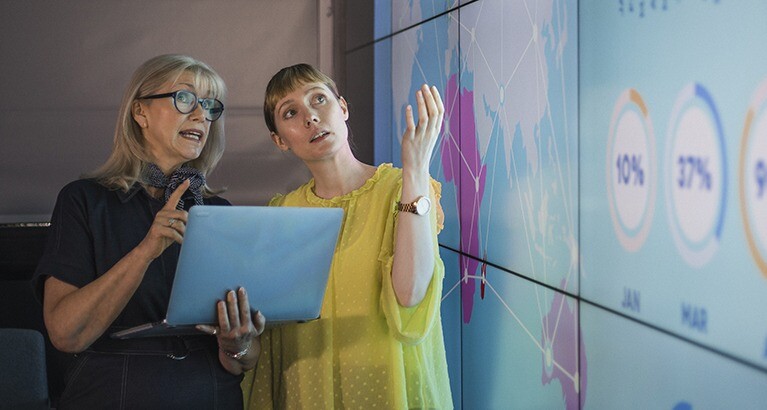Centre for Business Research
The Centre for Business Research (CBR) aims to better understand how to achieve a sustainable economy and society. We are pioneering new methods of data collection and analysis of enterprise and innovation. We are developing novel approaches to macroeconomic modelling, and unique datasets that track legal and regulatory changes and their economic impact.
Encouraging sustainable and equitable economic growth
What are the infrastructure needs of innovative economic regions? What is the impact of digitalisation on the organisation of work? How far do human rights and the rule of law contribute to sustainable economic growth? The Centre for Business Research (CBR) addresses these issues using an interdisciplinary and data-driven approach.
Our aim is to provide evidence that will inform sustainable and equitable development. Our datasets and reports are widely used by researchers, businesses, civil society organisations and policy makers, and have made a positive impact in many local and global communities, from the region of Cambridge itself, to the work of governments and international agencies around the world.
Who we are
Our team consists of 20 or so core staff (researchers and administrators) and a network of nearly 100 associate members, who are former postdoctoral researchers and co-investigators on CBR projects. We welcome visiting fellows and PhD students with interests related to current projects. Our work is entirely supported by external grant income, mostly raised from UK sources, principally the Economic and Social Research Council.

What we do
Our research is driven by twin goals of scientific progress and social impact. We seek to understand above all how institutions and policies can help promote sustainable and equitable economic growth. Businesses do not operate in isolation: they need supportive laws and effective infrastructure, with the right mode and level of regulation to succeed in the wider economy. Over more than 2 decades, the CBR has developed novel models of data collection and analysis to respond to these issues. Work in applied economic and social research has a long history in Cambridge. In building on this tradition we aim to ensure in all our work that policy is evidence-based and research data-orientated.
Standout projects
Our impact
The Centre’s research has had a tangible impact on economic and social policy in areas including entreneurship, innovation and governance for nearly 30 years. Recent projects include: a series of studies on university–business interactions in the UK; reports on the political economy of health in conflict-affected regions in the Middle East, including Lebanon and Gaza; the mapping of business activity in the greater Cambridge region, an essential prerequisite for infrastructure planning; and the creation of a unique dataset of labour and corporate laws, which is being widely used by researchers, governments and international agencies tasked with understanding the process of sustainable development.
Since 2020 our research has appeared in more than 100 academic journals and has been highlighted in a similar number of conference presentations around the world. Our researchers organised workshops in Cambridge, Glasgow, London, Chicago, and the Vatican. Our research was also widely reported in the media, podcasts and academic blogs.
News and insights from Centre for Business Research
Read the latest news and insights from Centre for Business Research.
Research centre news
Report finds stronger UK worker protection under new law
Legal protection for British workers under the Employment Rights Act 2025 will move closer to the Organisation for Economic Cooperation and Development (OECD) average, according to a new UK government report that uses the Labour Regulation Index of the Cambridge Centre for Business Research (CBR) at Cambridge Judge Business School.
Research centre news
Report on UK tech cites testimony from Cambridge Judge
The UK House of Lords Science and Technology Committee cited testimony and written evidence by David Connell, Senior Research Fellow at the Centre for Business Research at Cambridge Judge Business School, in a new report on the failure of UK technology companies to scale up to become global players. The report is entitled Bleeding to death: the science and technology growth emergency.
Research centre news
Paper says UK economic data issues reflected defective methodology
Data that seriously distort Britain’s post-war economic history arose because the UK’s Office for National Statistics (ONS) made errors that should have been easily spotted and adopted a highly defective methodology, says a new working paper written by Bill Martin, Senior Research Associate at the Centre for Business Research (CBR) at Cambridge Judge Business School.




